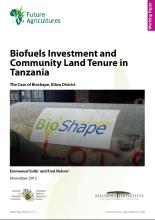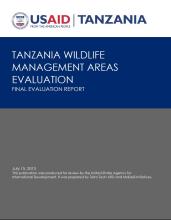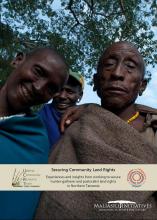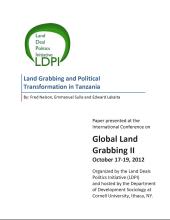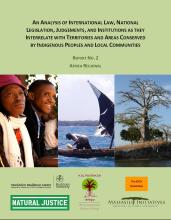Land Library
Welcome to the Land Portal Library. Explore our vast collection of open-access resources (over 74,000) including reports, journal articles, research papers, peer-reviewed publications, legal documents, videos and much more.
/ library resources
Showing items 1 through 9 of 9.Sub-Saharan Africa has always been perceived as a land-abundant continent. Deininger & Byerlee (2011) estimate that the continent has the largest area of potentially available uncultivated land.
Land registration and titling in Africa has been seen as a means of legal empowerment of the poor that can protect smallholders’ and pastoralists’ rights of access to land and other landbased resources.
In South Africa, policies of separate development and restrictions placed on capital expenditure imposed on the lands occupied by the indigenous people during the colonial era prevented the state from implementing the cadastre in the communal areas of the country.
The Department of Mineral Resources is attempting to develop oil and gas drilling in South Africa through Operation Phakisa. The project is still in the early stages of research and exploration, but the Department aims to have 30 wells built in 10 years.
One of the most wellknown biofuel investments was that of Bioshape, which acquired approximately 34,000 ha in Kilwa District for the cultivation of jatropha.
The increasing importance of the Wildlife Management Areas (WMAs) in Tanzania, where 17 WMAs are now functioning and 22 others are in various stages of development, begs the question of what successes have been achieved and what challenges remain to be addressed if this Community-Based Conservati
In this publication two pioneering grassroots organisations from northern Tanzania examine and present their experiences and insights from their long-term work to secure the land rights of hunter-gatherer and pastoral communities.
Like many of its neighbors, Tanzania is experiencing a well-documented surge of land grabbing related to investments in industries such as agriculture, biofuels, tourism, hunting, and forestry.
This report provides a synthesis of three country level case studies (Namibia, Senegal, Kenya) carried out in African countries as a part of the overall legal review of Indigenous People’s and Community Conserved Territories and Areas (ICCAs).




